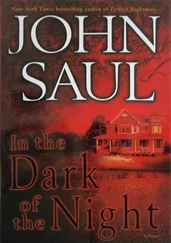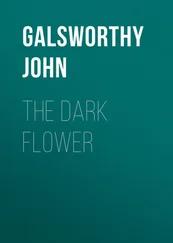The man with the sack left the stage as the commissioner entered a number in a black ledger. Ignoring the other petitioners, the two wolves led Gabriel up a ramp to the stage and forced him to sit on a wooden stool in front of the desk. The commissioner closed his ledger and looked up at this new problem.
“Well, it’s our visitor from somewhere else. I’ve been told that your name is Gabriel. Is that accurate information?”
Gabriel stayed silent until the blond man jabbed him in the back with a club.
“That’s correct. And who are you?”
“My predecessors were fond of grandiose and meaningless titles like major general or chief of staff. Indeed, one man called himself president for life. Of course, he lasted only five days. After much thought, I’ve chosen a more modest title. I’m the commissioner for patrols in this sector of the city.”
Gabriel nodded, but stayed silent. The gas flare burning behind him made a hushing sound.
“Visitors from the outside have appeared in the city, but you’re the first one I’ve encountered. So who are you and how did you get here?”
“I’m just like everyone else,” Gabriel said. “I opened my eyes and found myself beside the river.”
“I don’t believe that.” The commissioner of patrols got up from the desk. Gabriel saw that he had a revolver in his belt. He snapped his fingers and one of his assistants hurried over with a second stool. The commissioner sat down close to Gabriel, leaned forward, and whispered.
“Some say that a divine power will rescue the final group of survivors. Of course, it’s in my interest to encourage such hopeful fantasies. But it’s my belief that we’ve been condemned to slaughter one another over and over again until the end of time. That means I’m here forever, unless I find a way out.”
“Is this the only city in this world?”
“Of course not. Before the sky darkened, you could see other islands farther down the river. But my assumption is that they were only other hells, perhaps with inhabitants from different cultures or different historical eras. But all the islands are the same-a place where souls are condemned to repeat this cycle forever.”
“If you let me explore the Island, I could look for a passageway out.”
“Yes, you’d like that. Wouldn’t you?” The commissioner stood up and snapped his fingers again. “Please bring the special chair.”
One of the assistants ran away and returned with an old-fashioned wheelchair-an elaborate construction made of bentwood, a wicker seat, and rubber tires. The handcuffs were removed from Gabriel’s wrists. Using nylon rope and lengths of electric cord, the petitioners tied Gabriel’s arms and legs to the frame of the chair. The commissioner of patrols watched this process, occasionally telling his men to add a few extra knots.
“You’re the leader here,” Gabriel said. “So why can’t you stop the killing?”
“I can’t get rid of the anger and hatred. I can only channel it in various directions. I’ve survived because I’m able to define our enemies-the degenerate forms of life that must be exterminated. Right now, we’re hunting down the cockroaches that conceal themselves in the darkness.”
The commissioner walked down the ramp. The blond man followed him, pushing Gabriel in the wheelchair. Once again, they passed down the school’s ground-floor hallway. The wolves waiting there lowered their heads slightly when the commissioner of patrols walked past them. If he saw some trace of disloyalty in their eyes, then they would immediately become his enemies.
At the end of the hallway, the commissioner took a key out of his pocket and unlocked a black door. “Stay here,” he told the blond man, then pushed Gabriel through the open doorway.
They were in a large room filled with rows of green metal file cabinets. A few of the drawers had been pulled out and the contents dumped on the floor. Gabriel looked down and saw school grades, test results, and teacher comments. Some of the files were stained with blood.
“All these cabinets contain student files,” the commissioner explained. “There are no children on the Island, but when we woke up that first morning this was a real school. There was chalk for the blackboards, paper and pencils, and canned food in the student cafeteria. Little details like that increase the level of cruelty. We didn’t just destroy an imaginary city, but a real place with stoplights and ice-cream parlors.”
“Is that why you brought me here?”
The commissioner of patrols pushed Gabriel past the file cabinets. Two small gas flares were burning from wall pipes, but the light was almost overcome by the shadows in the room. “There’s a reason why I picked this school as my headquarters. All the stories about visitors are connected to this room. There’s something special about this particular location, but I haven’t been able to discover the secret.”
They reached a central work area with tables, trays, and metal chairs. Gabriel was captive in the wheelchair, but he moved his head around, searching for the patch of infinite black space that would provide a passageway back to the Fourth Realm.
“If visitors can travel to this world, then there has to be a way out. Where is it, Gabriel? You have to tell me.”
“I don’t know.”
“That’s not an acceptable response. You need to listen to me clearly. At this point, I can see only two possibilities. You’re either my only hope for escape, or you’re a threat to my survival. I do not have the time, or the inclination, to guess which option is correct.” The commissioner drew his revolver and pointed it at Gabriel’s head. “There are three bullets in this gun-probably the last three bullets that exist on this island. Don’t make me waste one of them killing you.”
Maya was still carrying the snub-nosed revolver she had acquired back in New York. The weapon determined her choice of transportation. Avoiding airports, she used a rural bus, a ferryboat, and a train to travel from Ireland to London. She arrived at Victoria Station in the middle of the night without a clear idea of how to find Gabriel. Before he left Skellig Columba, he had promised to contact the Free Runners, so Maya decided to drop by Vine House on the South Bank. Perhaps Jugger and his friends would know if Gabriel was still in the city.
She crossed the Thames and walked up Langley Lane toward Bonnington Square. The streets were empty at this late hour, but she could see the glow of televisions in darkened rooms. Maya passed some renovated terrace houses and a redbrick school built in the Victorian era that had been transformed into an upscale apartment building. In such surroundings, the Vine House looked like a shabby old man surrounded by well-dressed bankers and barristers.
When Maya reached the six-foot-high stone wall that surrounded the garden at Vine House, she smelled a harsh odor that reminded her of a trash fire. The Harlequin stopped and peered around the corner of the house. No one was on the sidewalk or sitting in the little garden at the center of the square. The neighborhood seemed safe until she noticed two men sitting in a florist’s delivery van parked near the end of the block. Maya doubted that anyone had ordered a dozen red roses to be delivered at one o’clock in the morning.
There was no entrance to the back garden from Langley Lane, so she grabbed the top of the stone wall and pulled herself over. The burning smell grew stronger, but she still couldn’t see a fire. Light came from a streetlamp and the new moon glowing in the western sky. As quietly as possible, she moved down the garden pathway to the back of the house, found the door unlocked, and eased it open.
Smoke surged out of the open doorway and flowed around her like a flood of foul gray water. Maya stumbled backward, coughing and waving her hands. Vine House was on fire, and the eighteenth-century oak beams and floorboards gave off as much smoke as a coal pit burning underground.
Читать дальше












